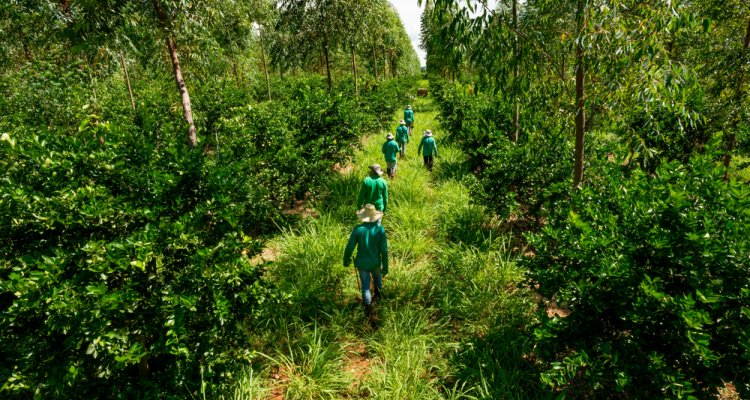
PhD defence
On the complexity of agroforestry systems
Summary
Agroforestry systems integrate trees and crop production, and are known for their environmental benefits. However, there is a large diversity of agroforestry systems, ranging from relatively simple silvopastures to highly biodiverse and complex agroforests. In this thesis, pioneering agroforestry systems in Brazil were assessed to explore how differences in complexity affect the provision of soil-based ecosystem services, such as carbon storage, nutrient cycling and water regulation. It was also assessed how agroforestry complexity affects labour demand. The results showed that more complex agroforestry systems also provide more ecosystem services, but this effect was stronger on sandy soils than on clayey soils. At the same time, complexity also tended to increase overall labour demand, especially for managing biomass (e.g. pruning, mulching). Farmers indicated that besides labour demand the upscaling of more complex agroforestry systems is also hampered by lack of adapted machinery and access to subsidies.